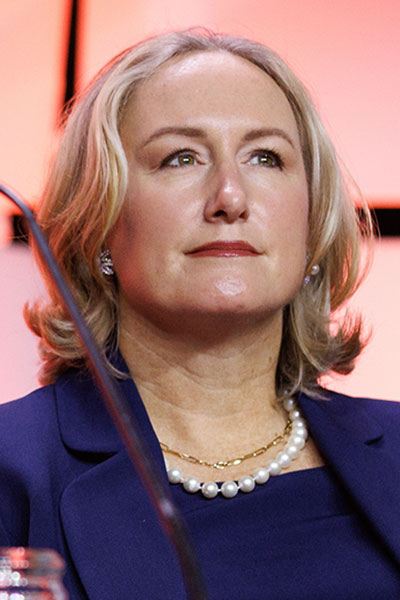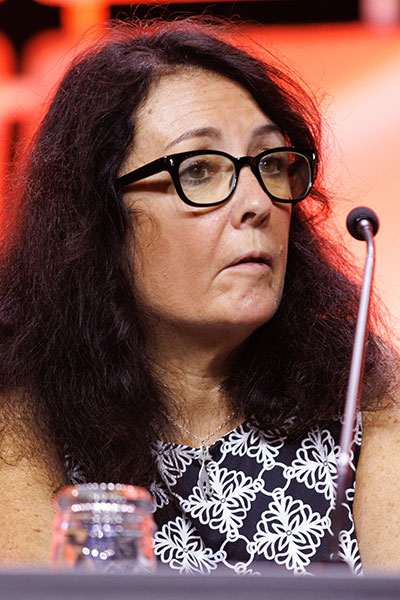Agents that target cyclin-dependent kinases 4 and 6 (CDK4/6) are standard of care worldwide for ER+/Her2- breast cancers. Current guidelines from the National Comprehensive Cancer Network (NCCN), European Society of Medical Oncology (ESMO) and Advanced Breast Cancer Fifth International Consensus Conference (ABC5) highlight CDK4/6 inhibitors without distinguishing between palbociclib, ribociclib and abemaciclib. But the leading front line CDK4/6 inhibitor clinical trials showed a range of outcomes in regards to progression free survival and overall survival and had different inclusion criteria in regards to previous treatment exposure.

“CDK inhibitors are crucial to our patients,” said Debra Patt, MD, PhD, MBA, Executive Vice President for Policy, Payer Relations, and Strategic Initiatives, Texas Oncology and Editor-in-Chief, Journal of Clinical Oncology – Clinical Cancer Informatics. “In terms of PFS, three of the four frontline clinical trials were very similar, but we are still in a largely data-free zone until we hear more from trials now in progress. The real question is how far we can go to extrapolate the data that we do have.”
Dr. Patt opened a debate asking Are All CDK4/6 Inhibitors the Same or Different? at SABCS on Thursday. What is clear, she said, is that there are more data on differences in safety and tolerability between palbociclib, ribociclib and abemaciclib than on their relative efficacy for different breast cancer subtypes.
Neutropenia, diarrhea, and dose reductions due to adverse events are the most common side effects for all three agents, but each has a different toxicity profile. Neutropenia is more common with ribociclib and palbociclib, whereas diarrhea is much more common with abemaciclib. Dose reductions due to adverse events ranged from a low of 31% for ribociclib in the MONALEESA 7 trial to 50% for ribociclib in MONALEESA-2 with palbociclib reporting 36% in PALOMA-2 and abemaciclib reporting 43% in MONARCH 3.
Abemaciclib is the only CDK inhibitor with continuous dosing, but it requires twice daily administration vs. once daily with the other two agents. Abemaciclib is also the only one of the three with proven single agent activity. All three are approved as first-line and second agents with endocrine therapy.
“We are very lucky to have these three agents,” Dr. Patt concluded. “While they have differences, they relate mostly to patient selection. If you don’t have the right drug in the right patient, we can always switch.”

The reason we can, and sometimes must, switch is that the three agents have different molecular structure and potency, countered Ruth O’Regan, MD, Charles A. Dewey Professor & Chair of Medicine at the University of Rochester Wilmot Cancer Institute. Different toxicity profiles are just the most obvious difference between palbociclib, ribociclib and abemaciclib. Depending on the trial and the drug, median overall survival for palbociclib ranges from 37.5 months in the PALOMA-1 trial and 53.9 months in the PALOMA-2 trial to 59 months for ribociclib in MONALEESA 7.
It can also be difficult to draw valid comparisons between the three agents. MONALEESA 7, for example, is the only trial of any CDK4/6i in pre and perimenopausal patients, which makes it the only CDK4/6 inhibitor to show benefits in progression free and overall survival in these two subgroups. Similarly, abemaciclib is the only CDK4/6i to be tested in patients with HR+ brain metastases, where it showed a 24% clinical benefit rate.
“The evidence is irrefutable that CDK inhibitors are not all the same,” Dr. O’Regan said. “And there is so much data that we don’t have at this point in time. Many of these questions will likely be answered in the next five years or so.”
On-Demand Session Availability
Daily sessions will be available for on-demand viewing 3-5 days following the 2022 Symposium (author permitting). They will be available exclusively to registered SABCS attendees until March 2023. Following March 2023, they will be available on SABCS.org under the “Resources” tab.

